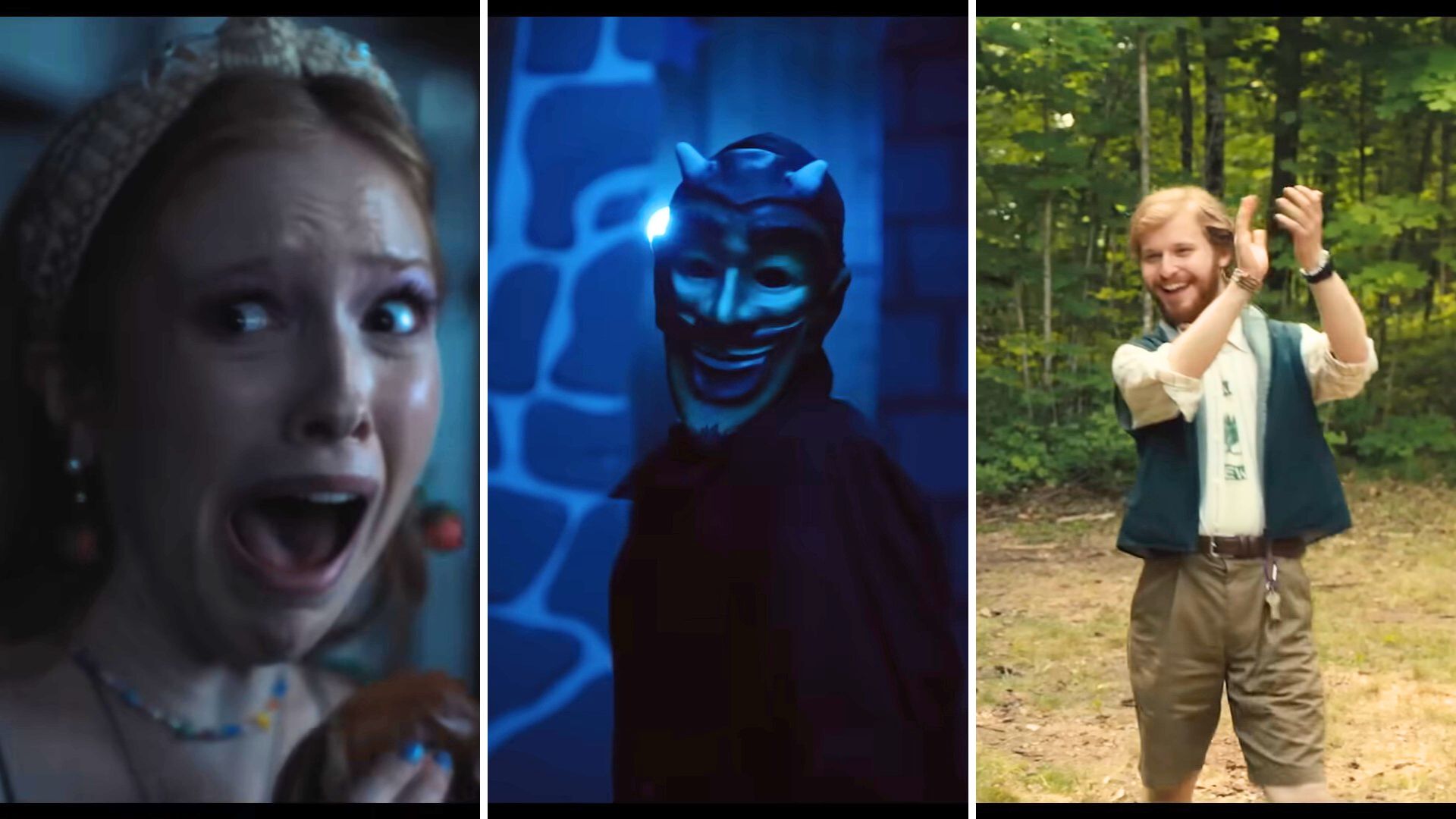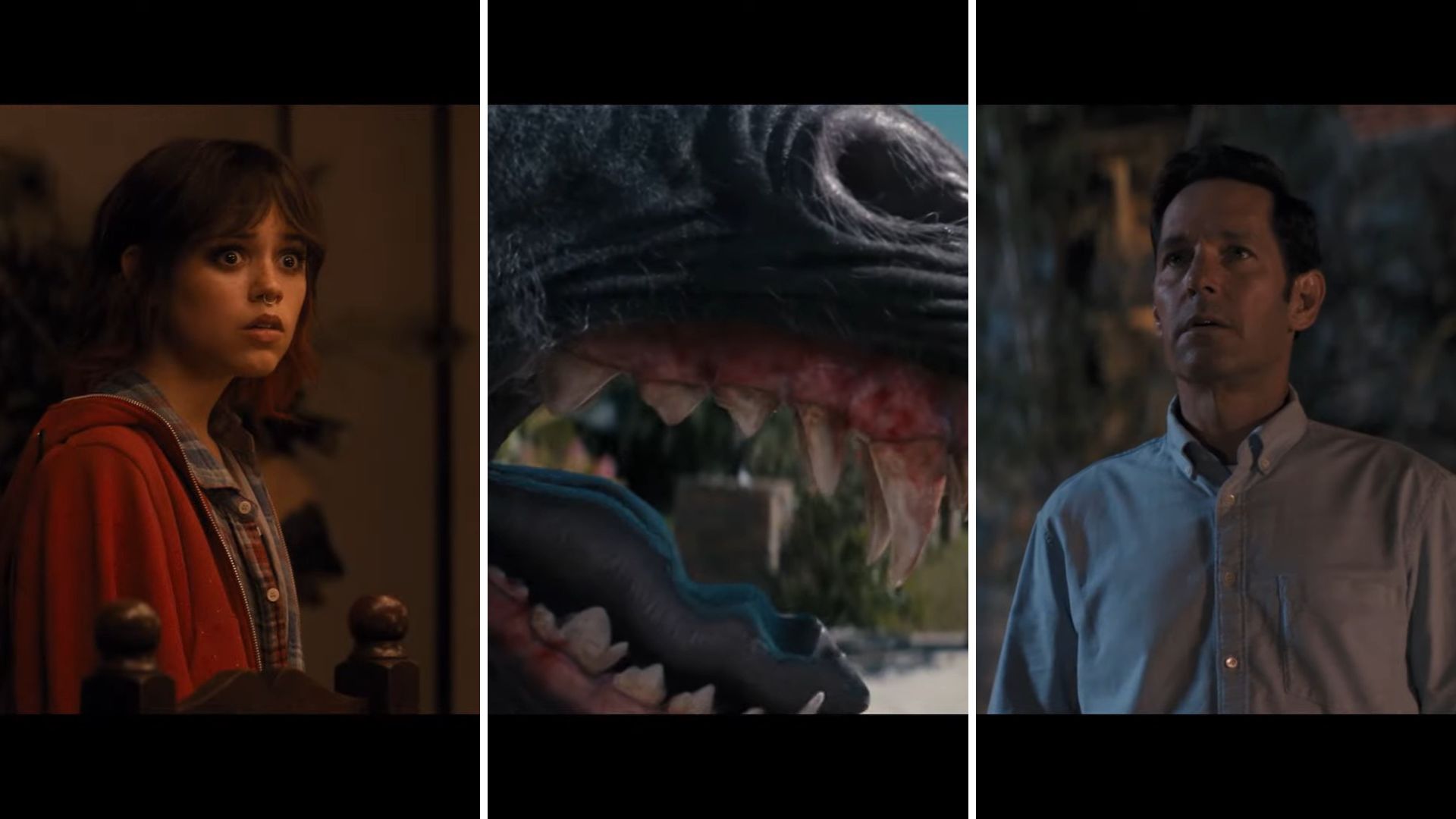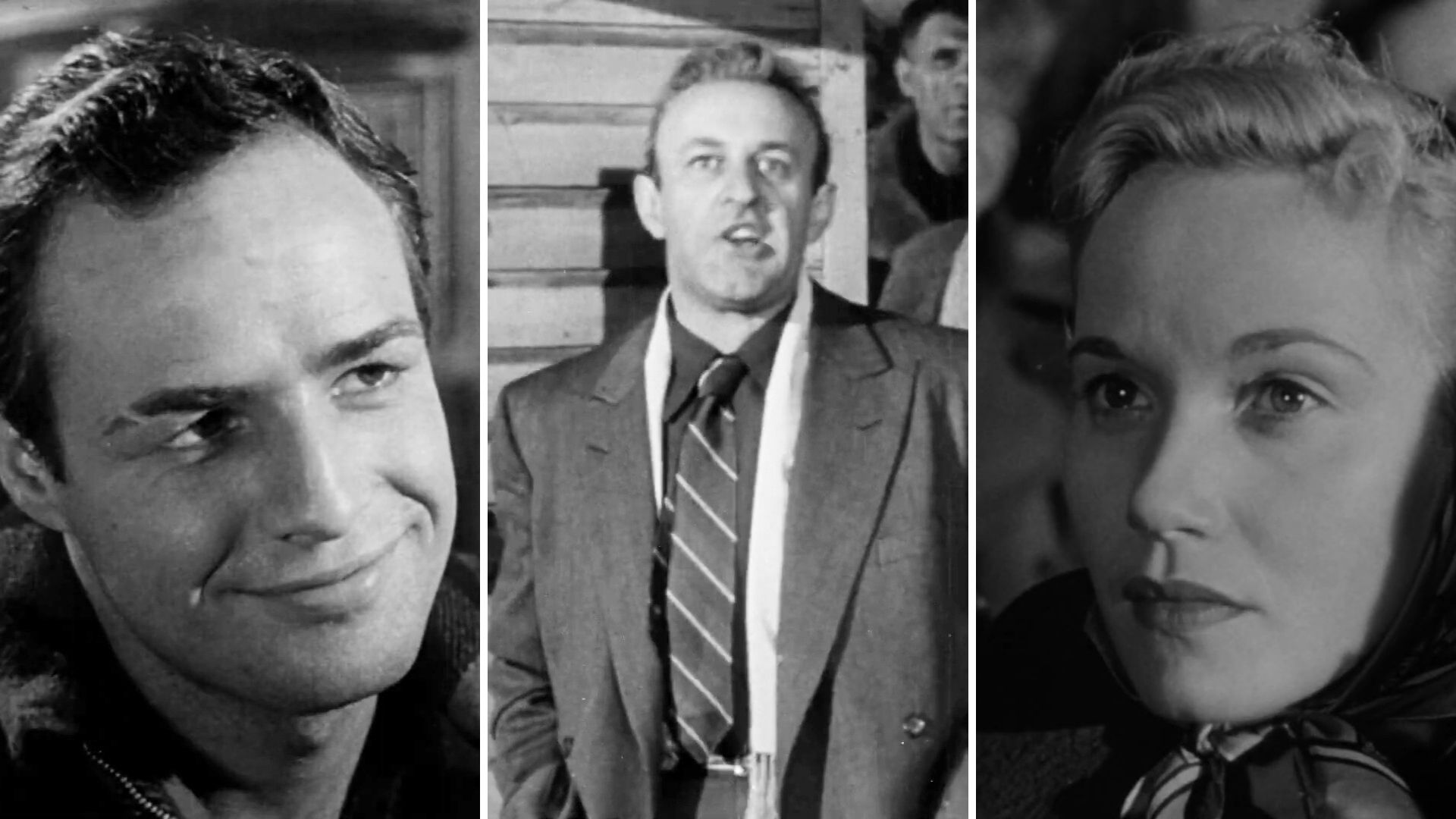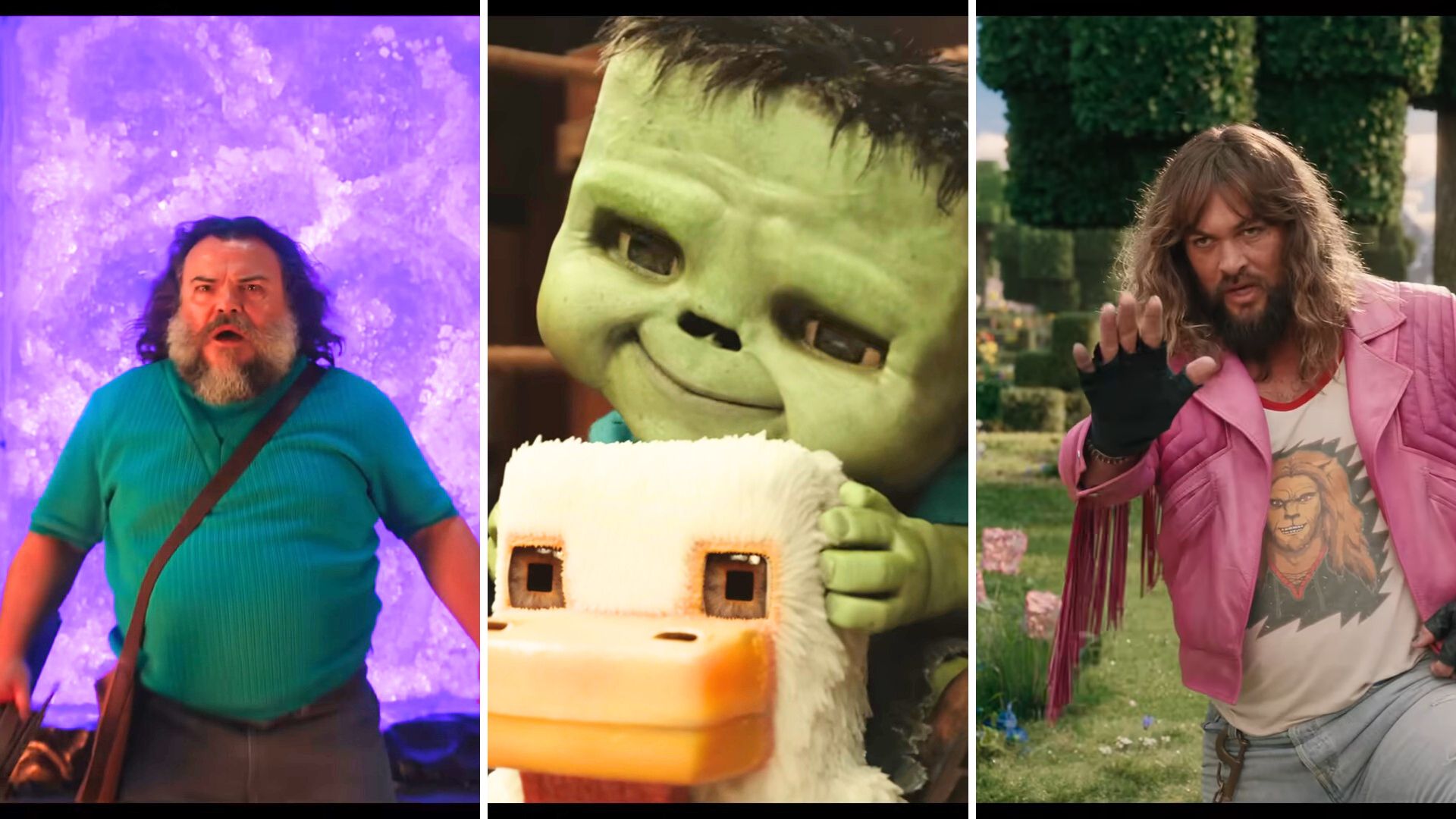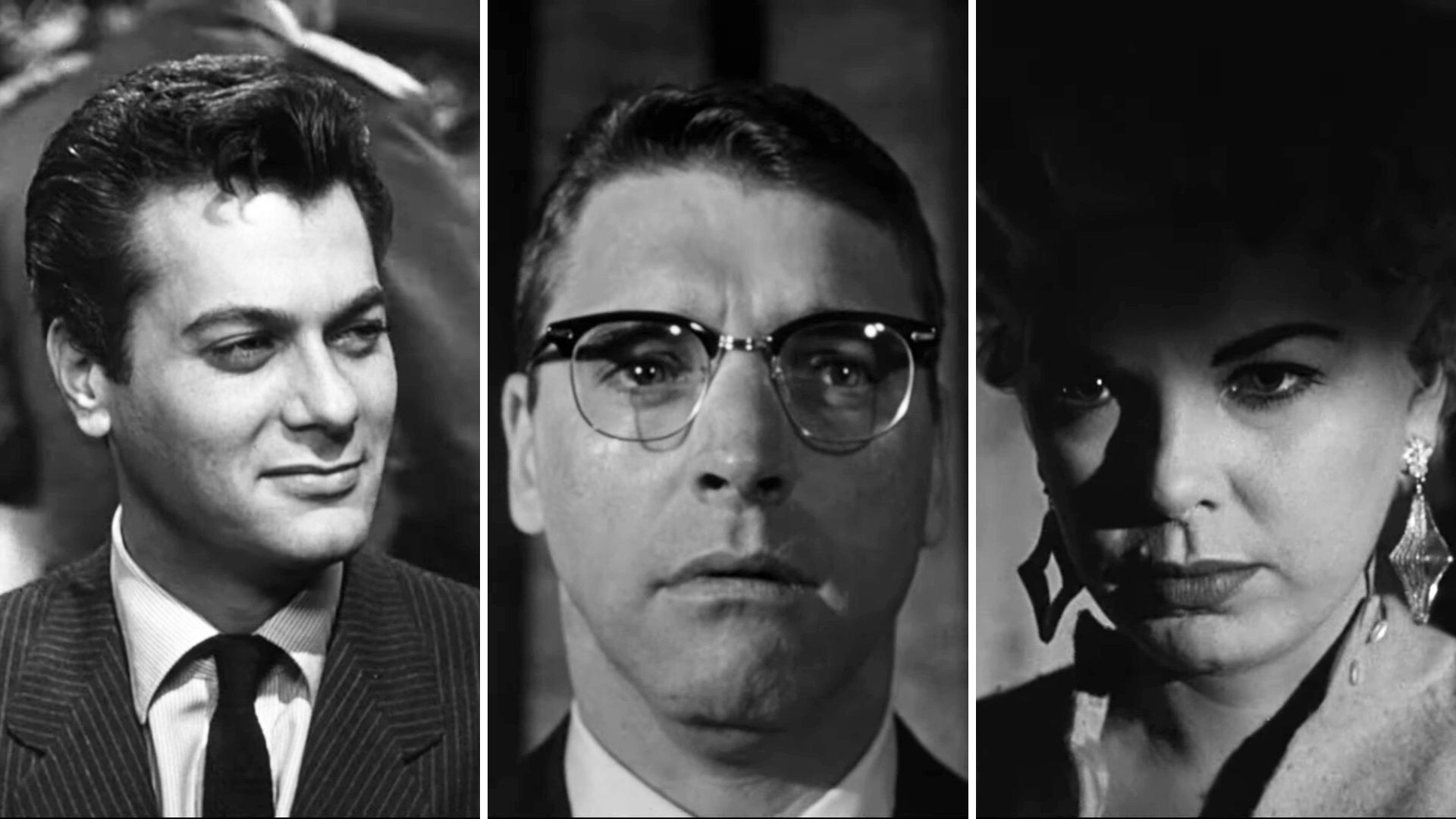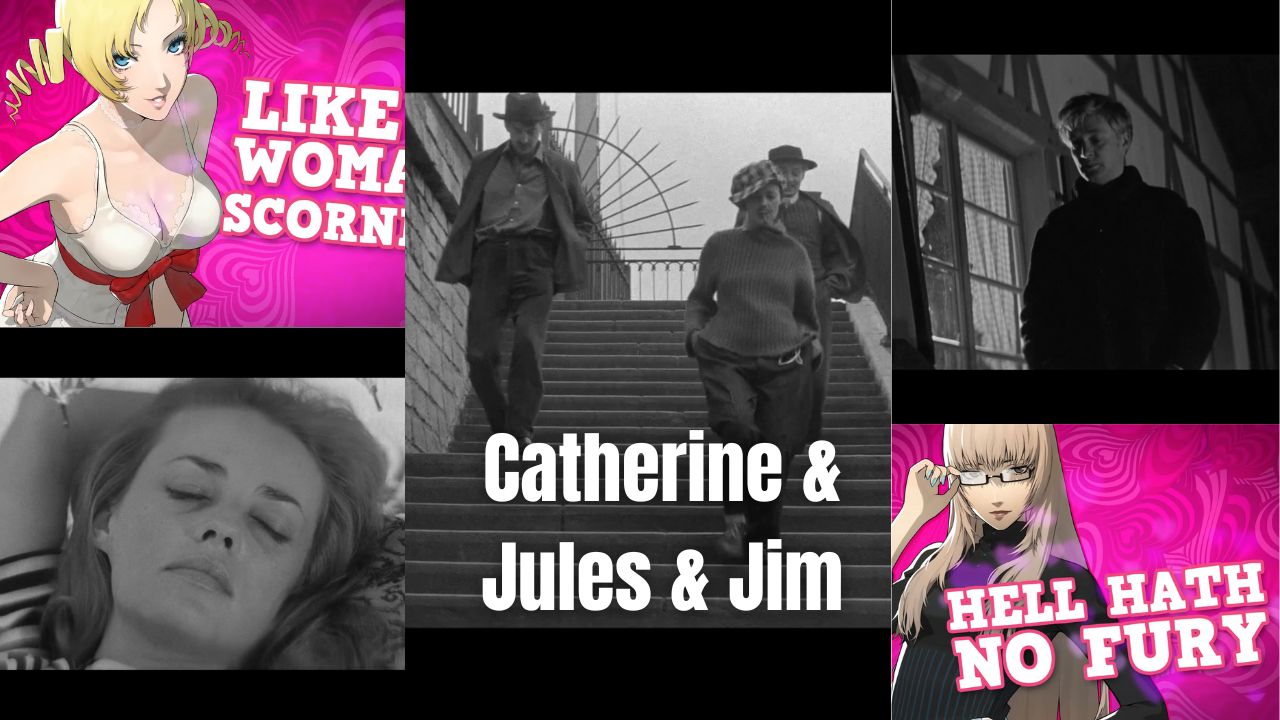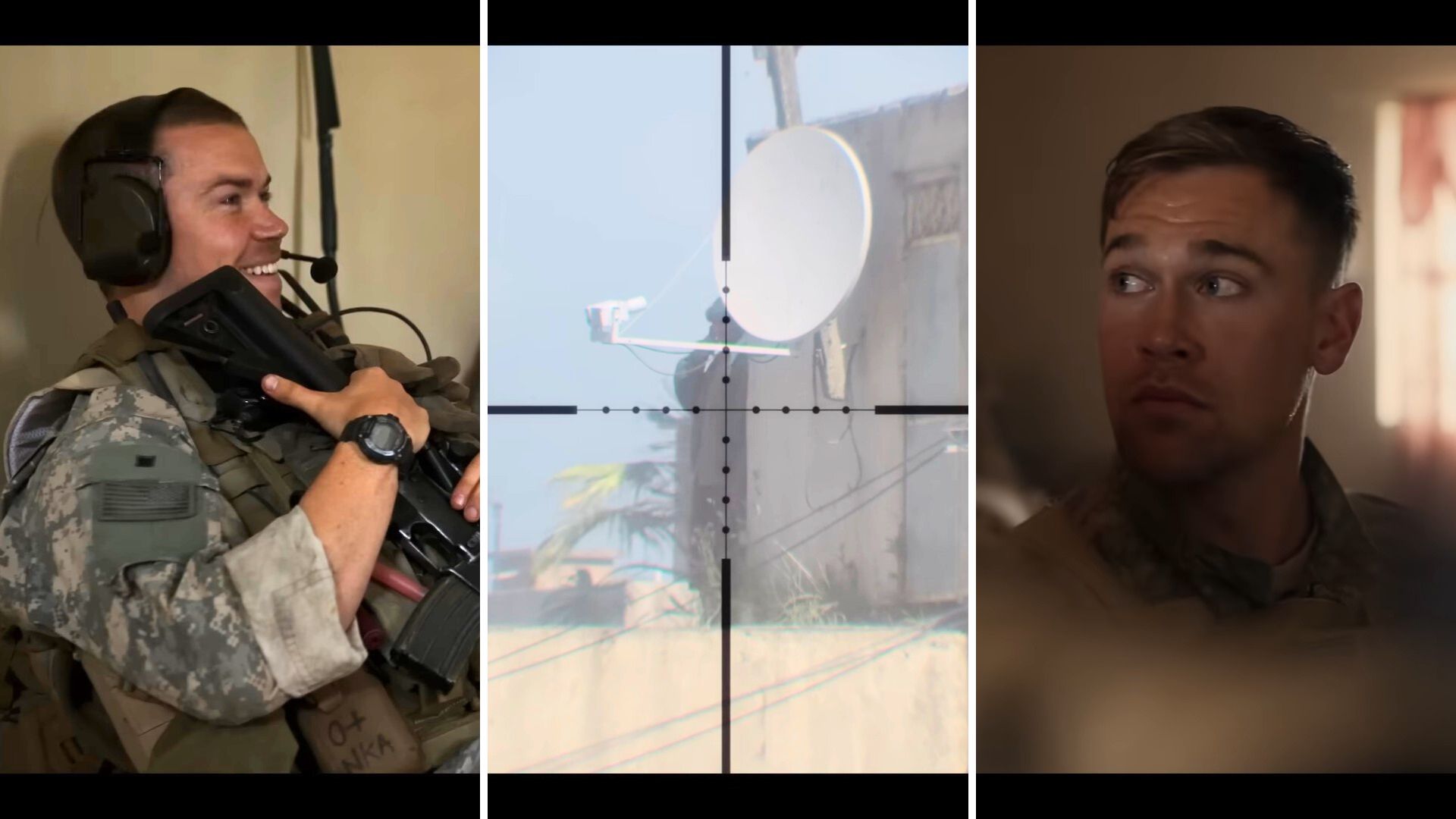
Alex Garland’s Civil War, which came out in 2024, was a huge success for A24. That film is a story of journalists on a cross-country road trip to grab the story of the collapse of an overthrown Washington D.C. Civil War was surprisingly short on action, save for the last dramatic invasion of the White House itself by a newly formed militia consisting of Texas and California. The scene is intense and set in real time, and the soldiers conquer with military efficiency their ultimate end goal.
Fans of Garland and that scene in particular will be happy to know that Warfare is essentially this scene spread out over an hour and a half. Warfare is the true story of a Navy SEAL team stationed in Ramadi, Iraq, and the harrowing experience they faced on November 19.
Dual Directors
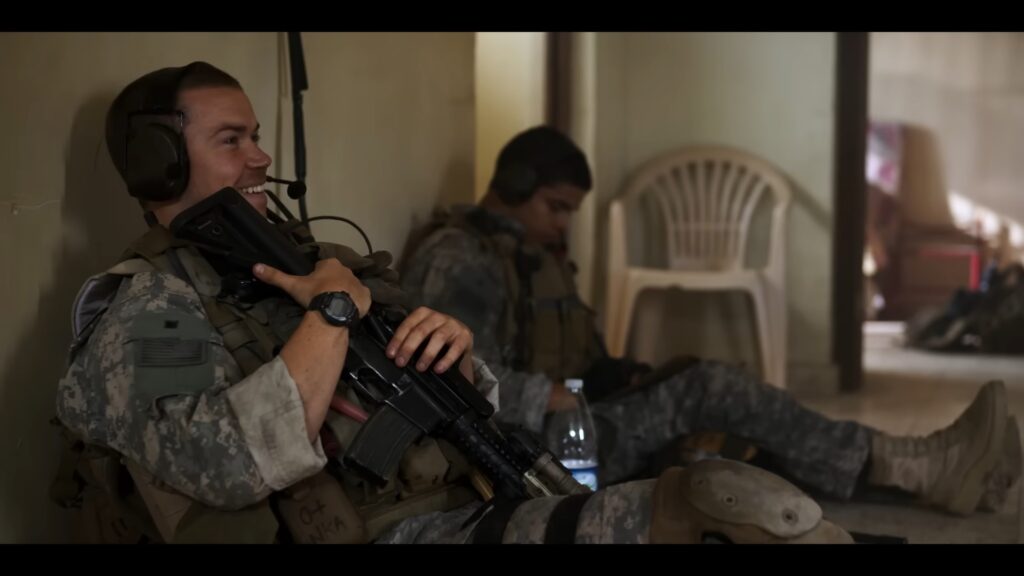
Warfare is co-directed by Garland and former Navy SEAL Ray Mendoza. Mendoza served as the military advisor for Civil War, and it was here that Garland had the idea for his next film. One that would be helmed by the two of them, but mostly Mendoza.
Entering with this knowledge, it’s quite impressive the technical mastery Mendoza is able to pull off with Warfare. The film is an intense real-time depiction of one battle gone awry. A battle Mendoza himself was a part of, and based solely on his memories of the event.
War is Hell
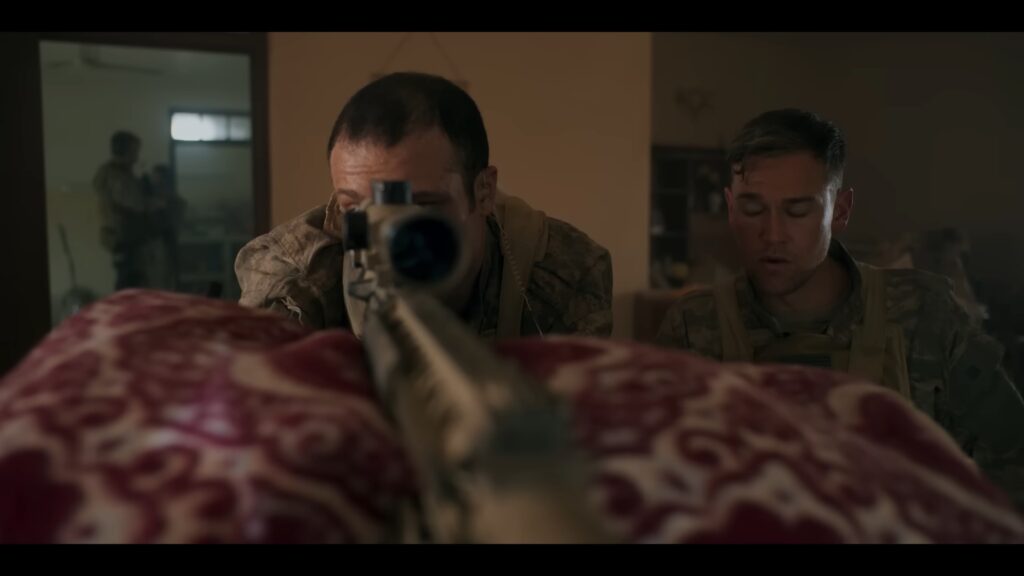
Warfare follows the SEAL team as they commandeer a house in the town of Ramadi, only to be quickly outmanned and outgunned by the surrounding enemy. The team takes massive casualties, cares for their wounded, and attempts to return fire to an ever-growing enemy. The film is intense, fast, and almost totally devoid of any distractions.
There is no music, no slow-mo action shots, and no Rambo-like hero figure. It’s just a group of men fighting a battle that seems harder to win the longer it goes on. The entire film is presented with as little style as possible, making it read closer to a documentary than a Hollywood film. Like Garland’s previous film, Warfare puts you front and center for the action and never stops to provide commentary.
Themes in War
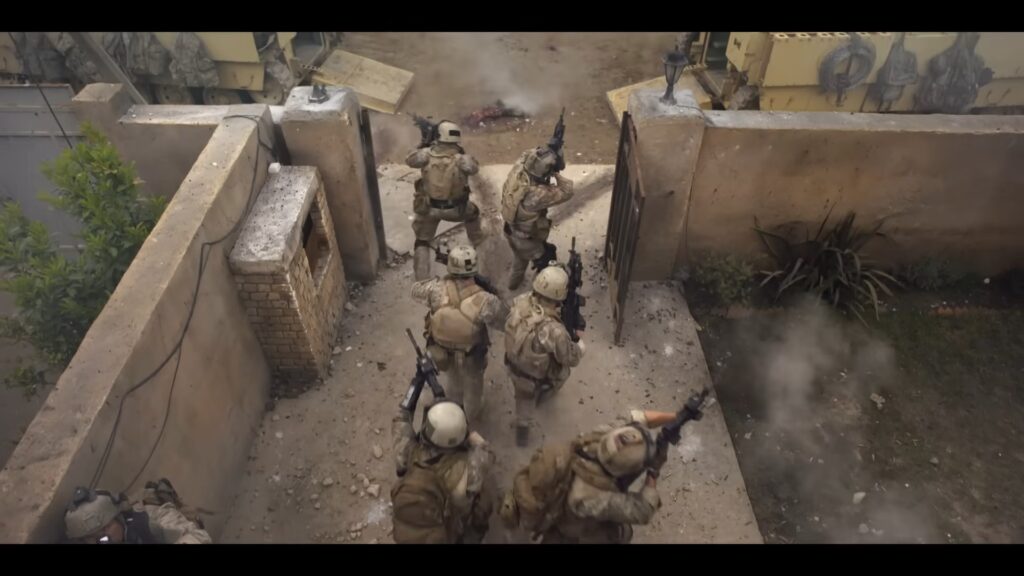
This is where I found the only real shortcoming with Warfare. It’s a movie about the Iraq War, but it isn’t really saying anything about the war. I believe this was both directors’ goals, but there is no real theme or message trying to be portrayed in Warfare. It’s an intense 90-minute war movie that has very little to say about its characters or their actions.
This isn’t necessarily a bad thing, as there have been countless films critiquing the U.S.’s operations in Iraq, but Warfare feels painfully devoid of a bigger message. It’s mesmerizing to watch and hard to look away from, but as soon as the credits roll, there isn’t much to think about. Warfare makes some strange choices with its ending after the narrative is complete, which further drives this point home. A quick montage plays of the real-life soldiers who fought in this conflict, but most of their faces are blurred out. It’s a bizarre choice, and I’m not totally sure if it was done for legal reasons or because the real-life characters didn’t want their faces out there. Either way, the inclusion of it with this asterisk makes the whole film feel even more perplexing.
Sounds of War
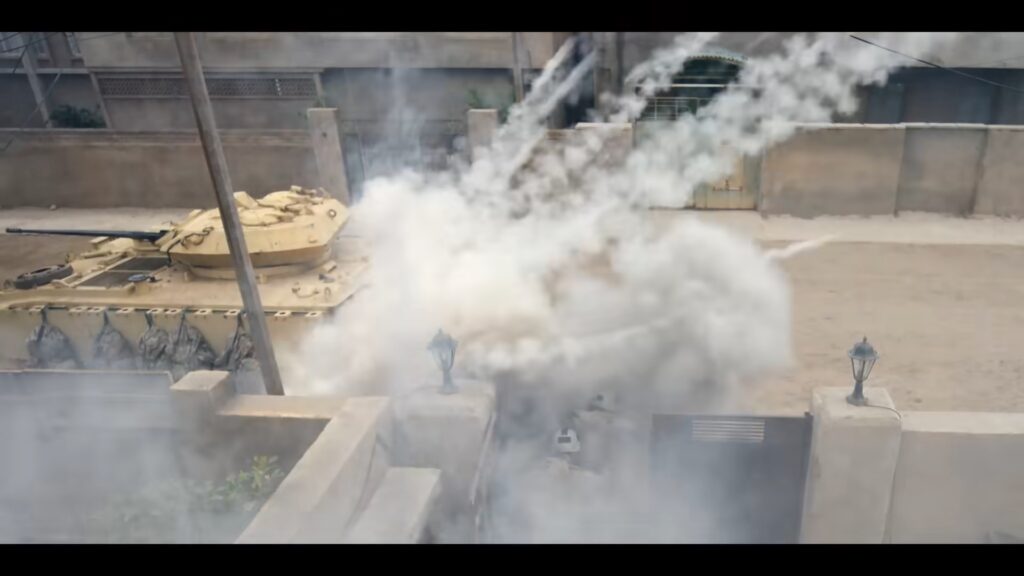
Strange endings aside, Warfare is a masterfully made film. Alex Garland stated in a recent interview with The Wrap that Mendoza took over the bulk of directing duties. It’s astonishing what he’s able to pull off, and it feels like one of the most true-to-life war movies we’ve ever seen. Imagine the Normandy scene from Saving Private Ryan, but that scene runs practically the entire length of the film. As soon as the bullets start flying, they never let up. And the audience is never given a chance to catch their breath.
As a visual representation of war, this feels true to form. There are no nicely planned action breaks or moments of reflection. It’s full speed ahead until the conflict is resolved one way or another. But as a film, it makes the entire experience this dizzying blur. Mendoza can frame and direct combat better than any filmmaker I can think of, and what he’s created here is not for the faint of heart.
Sound Design
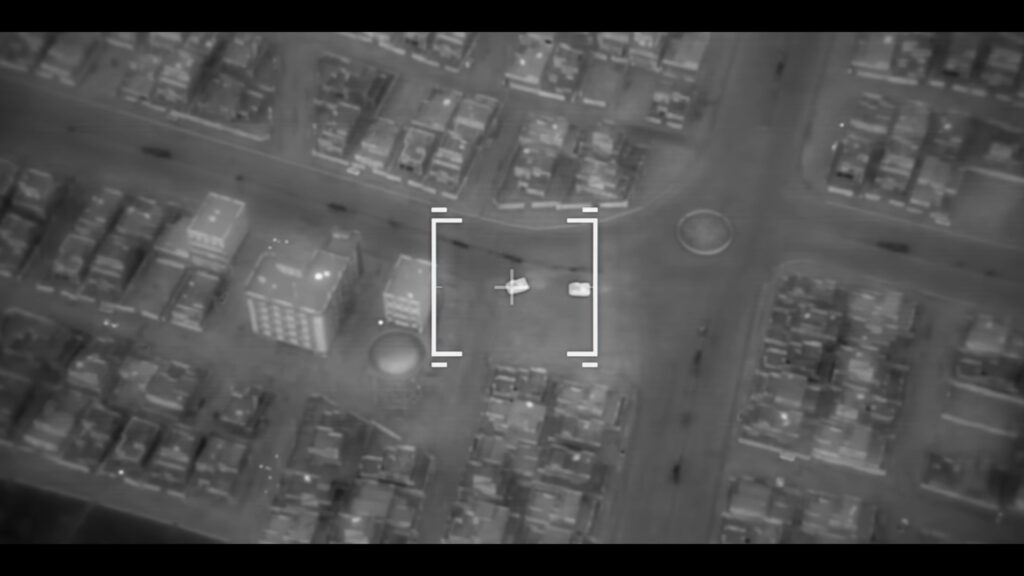
Where Warfare really shines is in its sound design. There were a few moments of explosions or gunfire that made me jump in my seat. The sounds presented are intense and vary from loud explosions to long echoes of voices barely audible. This is done to convey the tunnel vision that comes with the adrenaline rush of war. It’s a smart movie and one that works perfectly in the confines of this film.
Mendoza stated there were several moments in this skirmish where he blacked out and couldn’t remember pieces of the conflict. This feels true of the audience as well. We are never following just one protagonist, but are embedded in a crew of people. Even though the camera never stays on one subject, there is still so much going on that it’s impossible to keep up with everything. These audio cues, where the noises fade and then quickly snap back into place, make it feel like you are part of the action, trying to comprehend everything around you, only to realize it’s still happening.
Memories of Warfare
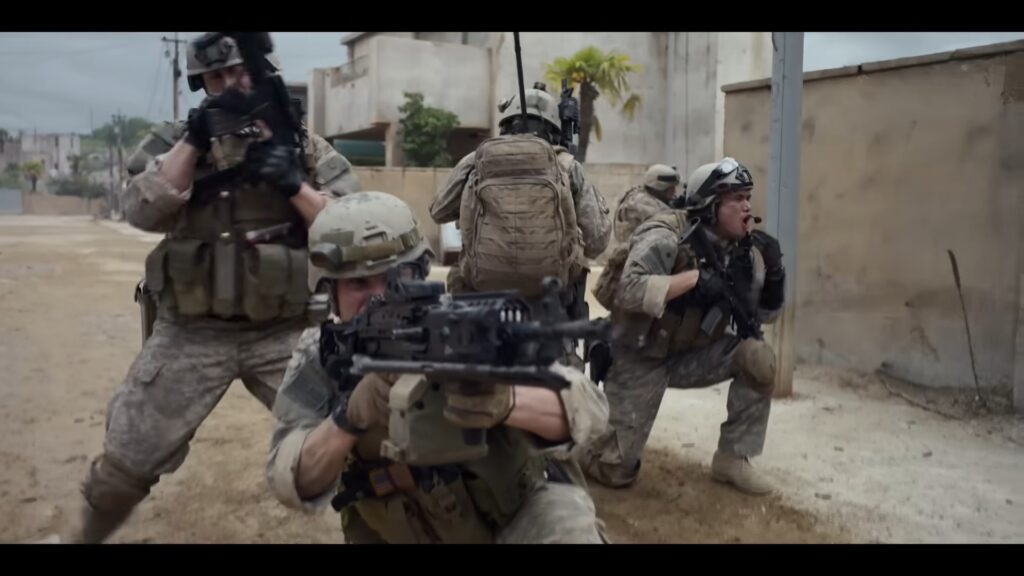
Warfare is a technical marvel, an auditory feast, and an incredible true story. But its lack of an overall theme or message left me feeling empty when I left the theater. I was a part of these wars myself. I went to Afghanistan in 2011 as part of Operation Enduring Freedom, and the feeling of Warfare is eerily similar to my actual experiences. When the combat ends, and there is nothing left to do but sit with your thoughts, it’s hard to find meaning in all of the immense emotions you just experienced.
I may have liked for Warfare to give me a clearer message, but my guess is Ray Mendoza longs for that as well. This is a film chronicling his experiences on what no doubt was an unforgettable and painful day. But at the end of that day, it must be impossible to surmise a meaning or theme for your experiences. Warfare honors the men it portrays, it hints at the damage they left behind, but it never tells you how to feel about it. Because for those who fought, sometimes it’s impossible to convey those feelings.



